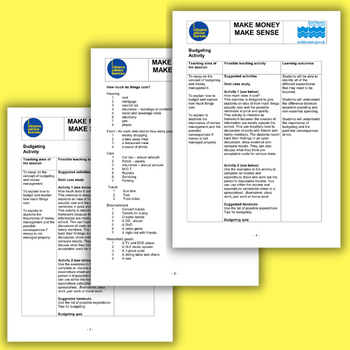8 ways to support secondary students through exam stress

As examination season looms ever closer, Darren Sayer has some advice for keeping your Y11s calm, focused and as happy as possible, all the way to the final call of 'time's up'…

- by Darren Sayer

We are one of the most tested school populations in the world. Stress brought on by exams can become a barrier to helping students reach their full potential by causing them angst from excessive fear and demotivating them.
In some, the excessive fear triggered by exams can lead to poor performance, reinforcement of failure and can negatively affect their wellbeing and relationships. It is therefore crucial we help students develop the tools to manage exam pressure throughout their school life.
In today’s school system, we expect young people to work towards a target grade identified when they were aged 11.
This is particularly troublesome for students living in circumstances where they are struggling to have their basic needs met – such as being able to eat regular, nutritious meals and having a safe place to come home to.
A singular focus on academic achievement is likely to be low on their priority list.
At the same time, these students are also expected to have the emotional and mental resilience to carry on with their studies when a test or exam result indicates they have underachieved and are ‘not on target’.
Stress, especially examination stress, manifests itself in many different forms. During a PSHE class, I addressed this issue using PHE’s Rise Above for Schools lesson plans to prompt discussion among my Year 11 students.
They cited a whole host of conditions they have experienced from migraines caused by worrying about exams to an inability to sleep, anxiety and reduced appetite. Ongoing tiredness meant they could not concentrate in school.
Some students even talked about not wanting to get up in the morning because the build-up of tension meant they didn’t want to face the onslaught of revision-focused lessons that they knew they would have to tackle that day.
Once the exams started, they referred to the further mental, emotional and physical toil the pressure put on their wellbeing. Here are some of the strategies we came up with to take the pressure off…
1 | Remove the fear!
Curb the constant reminders about the exams, or when they will be sat – students know this already. Instead, to help make exams less intimidating, show them how to revise, focus on the content and skills required, and how such skills can be applied by giving them mock exam questions to complete within time constraints.
2 | Encourage, support and be flexible
Encouragement and support should be facilitated by keeping communication between teachers and students open. This will help students feel they can ask questions about schoolwork related stress without being shot down.
Be flexible in terms of deadlines so students don’t feel like they are robots.
3 | Time management with a revision calendar
Time management and how to apply it effectively is something students struggle with, which is unsurprising, given the amount of demands on their time and the schedule they are expected to follow.
The simple device of a revision calendar and how to put one together was a popular suggestion from our students, as was getting the chance to organise work and resources regularly.
4 | Improve communication between subject staff
Tighten up communication between subject staff so each teacher has an idea of the assignments students have been tasked with across all subjects. This will help alleviate students feeling pulled in different directions at once, which can result in them finding it harder to know what to prioritise and feeling under pressure.
5 | Teach students how to handle disappointment
Attention should be placed on teaching students how to deal with disappointment, so their focus is on learning from their mistakes and how to avoid making them again. This will help shift the emphasis on what to develop rather than what has happened in the past.
6 | Give constructive feedback, not just grades, and make lessons fun
My students like the idea of regular and constructive feedback that moves their learning forward and is not always accompanied by a mark or a grade. They find the focus on grades can sometimes be debilitating, especially if they are heading in the wrong direction.
Make lessons fun and interesting. If students enjoy learning, they’re less likely to be stressed!
7 | Happy teacher, happy student
Teachers today are facing busy workloads and an ever-growing list of competing priorities causing their own mental health and wellbeing to suffer as a result. Stressed teachers can lead to stressed students.
It’s therefore important teachers are supported to manage their own health and wellbeing to foster a purposeful and relaxed atmosphere, helping to yield better outcomes.
8 | Help students know they are not alone
Any resource which allows young people to know they are not unusual or alone in feeling stressed are of value. My students particularly liked the ‘problem-page’ activity from the Rise Above exam stress lesson plan because of the empathy it created and the opportunity to hear useful advice from their peers.
However, make sure when using a resource that adopts young influencers to help coach students through some of the problems they may be experiencing, that they are true to your young people’s own experiences, otherwise they can feel inauthentic.
Though not universally popular, keep communication open with parents so students feel they are being supported rather than being squeezed between a rock and hard place.
Darren Sayer is the lead teacher working under the Deputy Headteacher at Hanson Academy in Bradford to improve teaching and learning.











